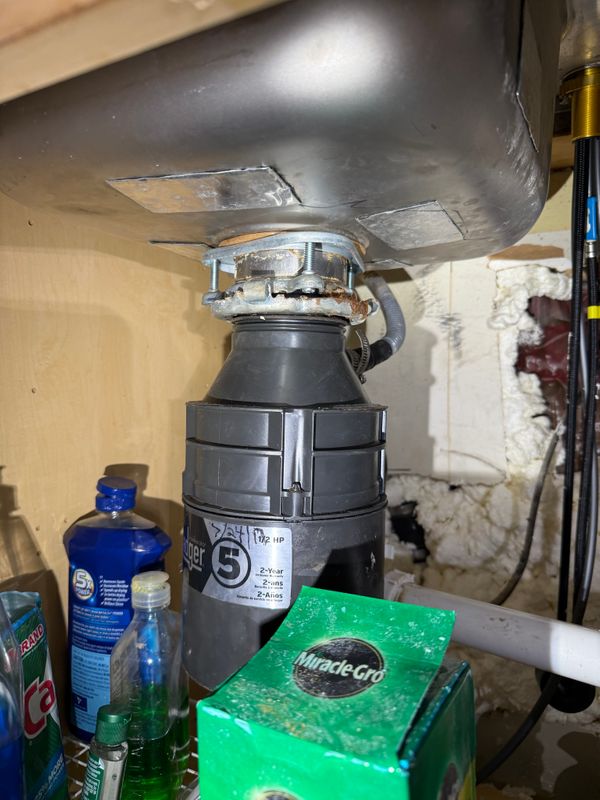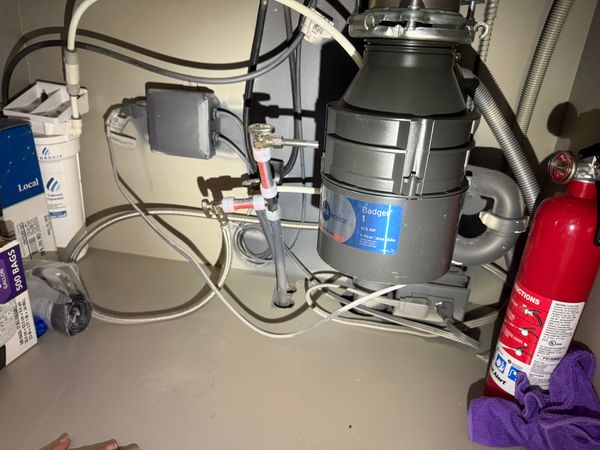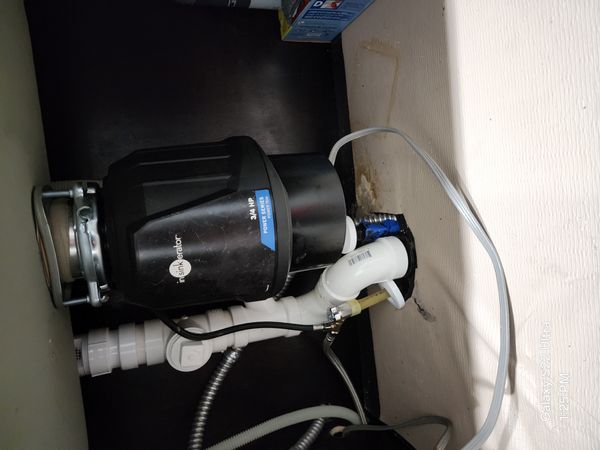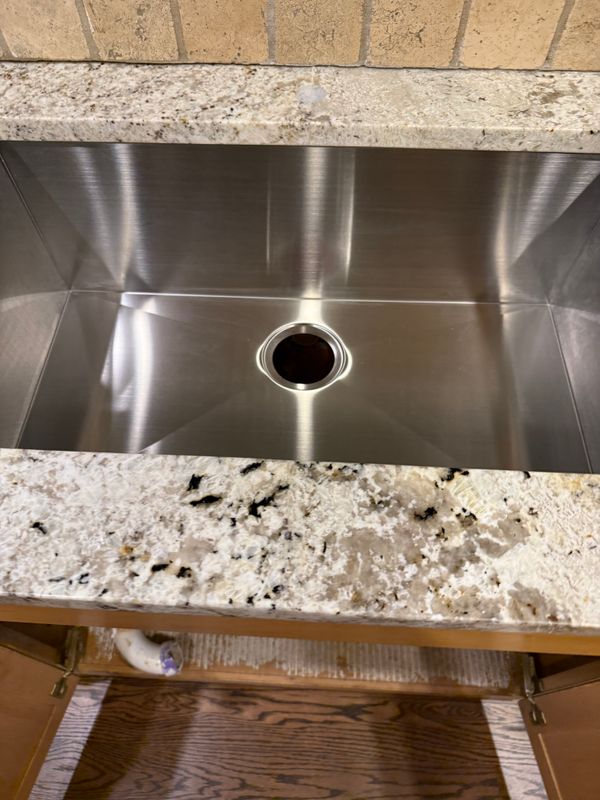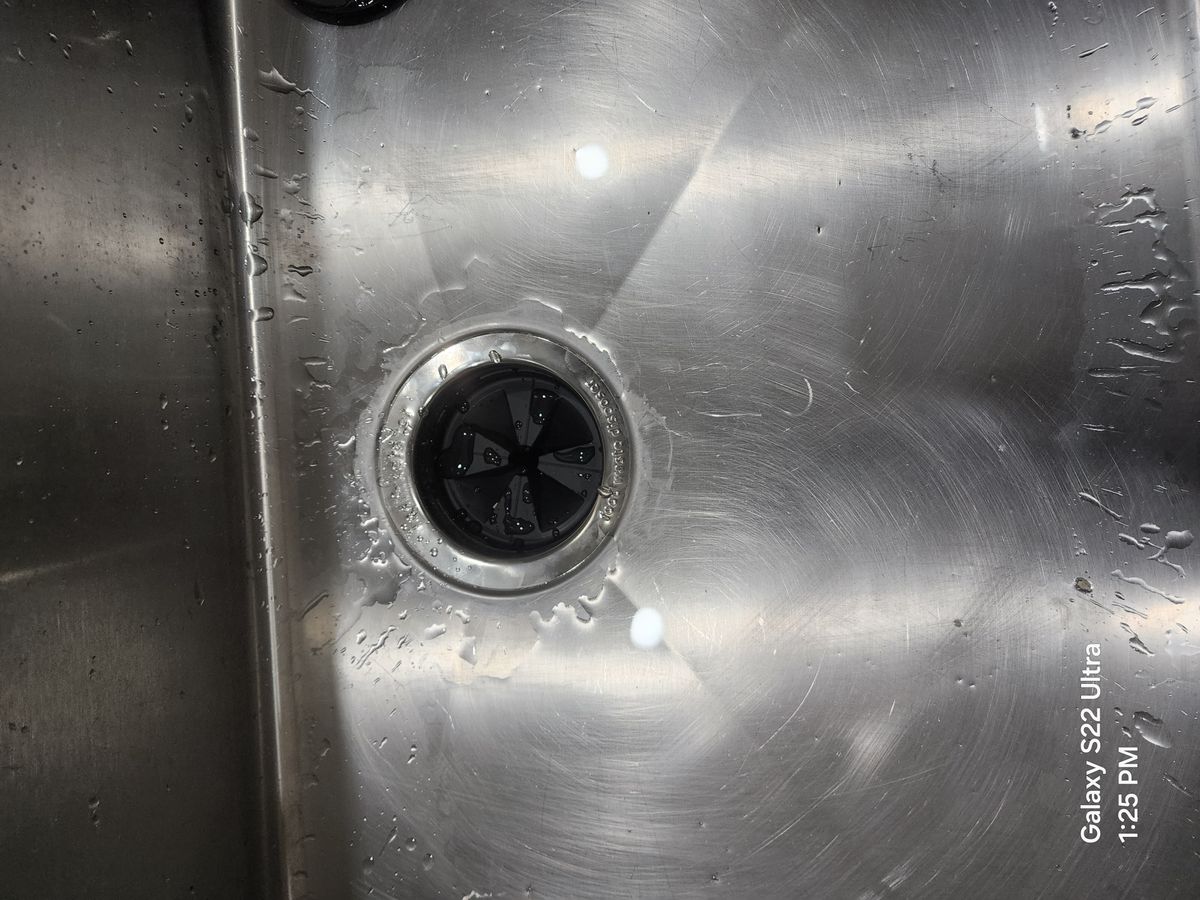A garbage disposal and a kitchen trash can serve different purposes. Understanding these differences is crucial for proper kitchen maintenance. Each has a unique role in managing waste.
The garbage disposal is part of your plumbing system. It breaks down small food waste into fine particles. These particles then move through your pipes and into the sewer system.
A kitchen trash can, however, collects solid waste. It holds items unsuitable for the disposal, such as packaging, paper, and plastics. It's essential for keeping your kitchen clean and odor-free.
Misusing your garbage disposal can lead to costly repairs. It's vital to distinguish what belongs in each. For easy reference, consider this list:
Garbage Disposal: Small food scraps, soft foods, and biodegradable items.
Kitchen Trash Can: Non-food waste, packaging, and bulk solids.
Using each correctly supports a healthy kitchen environment. Proper waste management prevents plumbing issues and promotes efficiency in your kitchen.
What Should Never Go Down Your Garbage Disposal
Garbage disposals are handy, but they have their limits. Not everything belongs in the disposal. Misuse can lead to clogs and damage.
Fibrous foods like celery and corn husks are troublemakers. They can wrap around the blades, causing jams. Avoiding them is crucial.
Starchy substances expand in water. Pasta and rice can create blockages. They swell and stick in your pipes, leading to inconvenient clogs.
Hard materials are a common issue. Bones and fruit pits can dull the blades. They may also cause the motor to overheat, a problem best avoided.
Grease and oil seem harmless, but they aren’t. They solidify when cooled, lining your pipes. This can lead to a slow drain and major backups over time.
Never put chemical drain cleaners in your disposal. They might promise a quick fix. Yet, these chemicals can corrode metal parts, causing long-term harm.
Here's a quick reference list of what to keep out:
By adhering to these guidelines, you ensure your garbage disposal functions smoothly for years. Protect it from these items and you'll save on repair costs and frustration. Proper maintenance and awareness can prevent many common problems.
Essential Garbage Disposal Tips for Everyday Use
Maximizing your garbage disposal's lifespan requires proper usage. Simple habits can make a big difference in performance.
Always use cold water when operating the disposal. Cold water solidifies oils, allowing them to be chopped before reaching the drain.
Run your disposal regularly to prevent rust and corrosion. Frequent use keeps components from seizing due to inactivity.
Chop larger pieces into smaller bits before disposal. Smaller items process more easily, reducing strain on the motor and blades.
Grinding a few ice cubes helps sharpen the blades. This simple action also removes any food residue, keeping the unit clean.
Avoid using your disposal as a bin for leftovers. Limit your disposal use to small food scraps. Non-food items belong in the trash can.
Limit the number of items inserted at once. Overloading can lead to jams and reduce the effectiveness of the disposal.
Consider these best practices:
Use cold water while running the disposal
Use regularly to prevent rust
Chop larger food waste
Grind ice to sharpen blades
Avoid non-food waste
By following these tips, you'll ensure your garbage disposal remains efficient and reliable. Proper use can save you time and money by preventing unnecessary repairs. Responsible operation is key to a long-lasting appliance.

